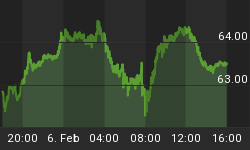
The London Bullion Market is the global trading centre for physical gold, and the Bank of England holds gold on behalf of other central banks. There are a number of historical reasons the Bank has this privileged role, but the most important are that the Bank is trusted, and it oversees the largest bullion market by far. Therefore a significant portion of the world's monetary gold should be stored at the Bank of England.
This does not appear to be the case. First, we must try to get an idea of how much unidentified central bank, or monetary gold, is in London at the Bank of England.
Table 1 shows the derived figures for February 2006 and 2012 (The Bank's accounting year-end).

Subtracting the known or reasonably estimable quantities listed in the table leaves 2,220 tonnes unidentified in 2006, which rose to 4,691 in 2012. To see how these figures stack up in a global context, we need to compose a second table (Table 2).

China, Russia and the middle-Asian states are taken out on the basis that their gold reserves are mostly from local mine production, and for political reasons they can be deemed unlikely to hold gold in London. The United States is assumed to hold all its gold on its own territory.
Immediately we can see a disparity, with unidentified central bank holdings in Table 2 declining by 464 tonnes, whereas the Bank of England reports an increase of 2,471 tonnes in custody. The explanation - taking the World Gold Council/IMF figures at face value - is that either central banks have been shipping their gold to London, or much more likely, the increase is not monetary gold at all. If the latter is correct, and given that the unidentified gold figures in Table 2 declined over the period, the maximum figure for monetary gold has to be within the 2,220 tonnes recorded in 2006.
This 2006 figure includes an undeclared quantity of gold held on behalf of bullion banks, but comparing the LBMA's clearing statistics at the two dates suggests little overall variation in LBMA stocks. Logically the balance must be non-monetary gold held on behalf of governments and sovereign wealth funds, on the basis that no one else would be eligible for a bullion account with the Bank. Given the political instability in the Middle East and elsewhere over the last decade, it is very likely that this is the origin of the ownership of much of this custodial bullion. And if that is the case, we can assume that these holdings began to accumulate in the Bank's custody before 2006.
This being the case, a significant portion of the 2006 figure of 2,220 tonnes must also be non-monetary gold. Therefore, on the basis of reasonable supposition it appears that the total amount of monetary gold at the Bank of England, including that of Germany, Austria and Mexico and the UK's own stock, cannot be more than 3,320 tonnes, perhaps significantly less. The belief that the world's central banks store a significant amount of their gold in London is therefore incorrect.
This raises two interesting questions: where is it all, and does it actually exist?















